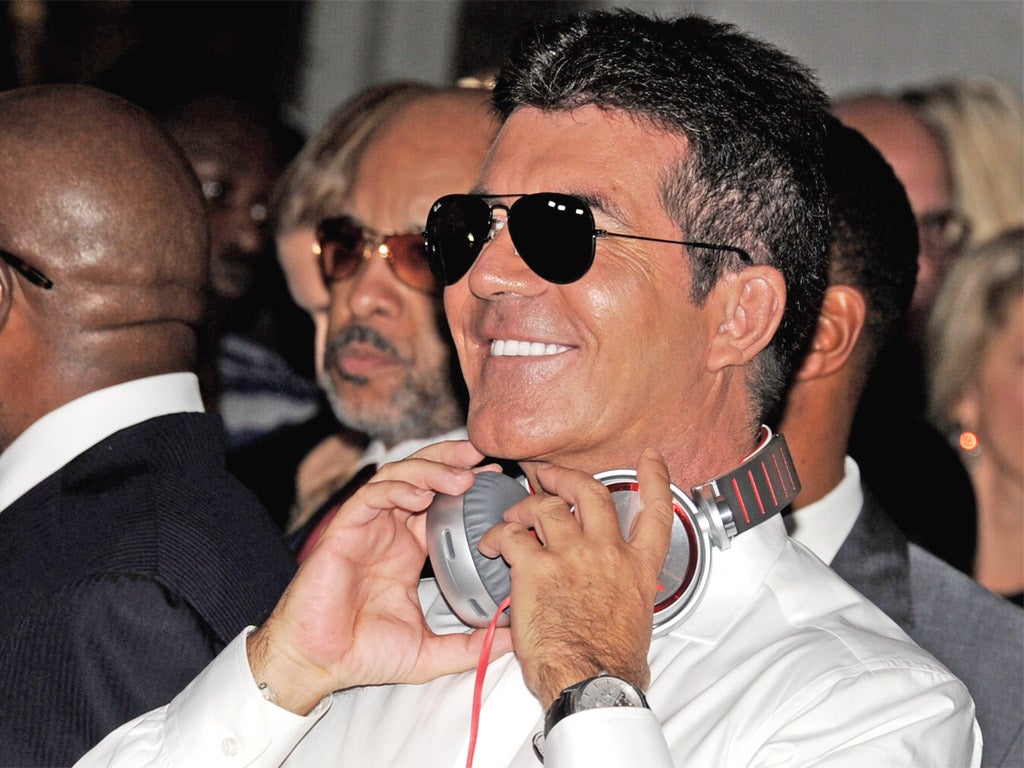Gadgets: Cans now carry the music biz
Dr Dre's huge success selling headphones has seen the rest of the record industry follow suit. But is this trend just a load of noise?

Last week, Forbes magazine named rapper, producer and entrepreneur Dr Dre as the highest-earner in hip-hop. In 2011, Dre made $110m (£70m) not from music – his last album was released in 1999 – but from headphones. Beats by Dre, the sound-equipment line launched by Dre and his business partner Jimmy Iovine in 2008, reportedly accounted for 53 per cent of the $1bn (£622m) global headphone market last year. Recently, Dre and Iovine sold 51 per cent of the Beats Electronics brand to HTC for $309 (£190m).
As if any further proof were needed that "premium headphones" are now the mainstream, another music mogul this week released his own range of cans in collaboration with Sony: Simon Cowell. The X headphone, which will be featured heavily in episodes of the US X Factor, retails at $299.99, a price-tag similar to those of its Beats range rivals. "With the X headphones," Cowell said, "it's like being in the recording studio."
Dre, of course, has made precisely the same claim about his own product. And that's not to mention the other stars with their own branded sound equipment: Sync by 50 [Cent]; Chambers by RZA; Jay-Z's Skullcandy/Roc Nation Aviator; and Soul by Ludacris, featuring the top-of-the-range SL300 headphone, with a design "inspired by the interior of a Bentley". In the UK, Tinchy Stryder recently launched the Goji On Cloud 9 headphones collection, while House of Marley is cashing in on its connection with the late reggae legend with its own headphone range "inspired by Bob Marley".
These audio accessories rely not only on the artist-entrepreneurs behind them, but on the other stars that endorse them. Usain Bolt, for instance, has put his name to a line of Soul headphones, while Beats by Dre have been spotted on the bonces of David Guetta, Lady Gaga and Justin Bieber. Beats managed to outflank strict IOC guidelines on sponsorship by donating its headphones to high-profile Olympic athletes, thought to include the likes of Michael Phelps, Tom Daley and the GB football team. John Lewis reported an overall increase of 19 per cent in headphone sales during the Games, but sales for Beats By Dre leapt by 42 per cent.
Sales of headphones now outstrip those of speakers by almost two to one: from the price heights of Beats and X to Asda's £1 pair, it is an indication of the way listening habits have evolved from the collective to the solo.
When iPods were still a novelty, it was said the signature white buds made their listeners a target for muggers. Now everyone has an iPod or a smartphone, but headphones remain the most conspicuous public evidence of a listener's taste and sophistication. Hence the rapid growth of the premium market. Before he and Dre released Beats, Iovine said: "Guys were making headphones that looked like medical equipment."
The future of the music business will be built not solely on album sales, but on diversity: live music, recorded music, sponsorship and accessories. There's irony in the fact that most people wearing high-end headphones are using them to listen to low-quality MP3 files.
When it was first launched, the Beats range gave its listeners a certain mystique, suggesting they were serious music lovers or professionals. Now cans are the norm. Fans of Cowell who'd rather not fork out for his X headphone could spend $19.99 for a rhinestone-studded pair of One Direction headphones instead.
Subscribe to Independent Premium to bookmark this article
Want to bookmark your favourite articles and stories to read or reference later? Start your Independent Premium subscription today.

Join our commenting forum
Join thought-provoking conversations, follow other Independent readers and see their replies